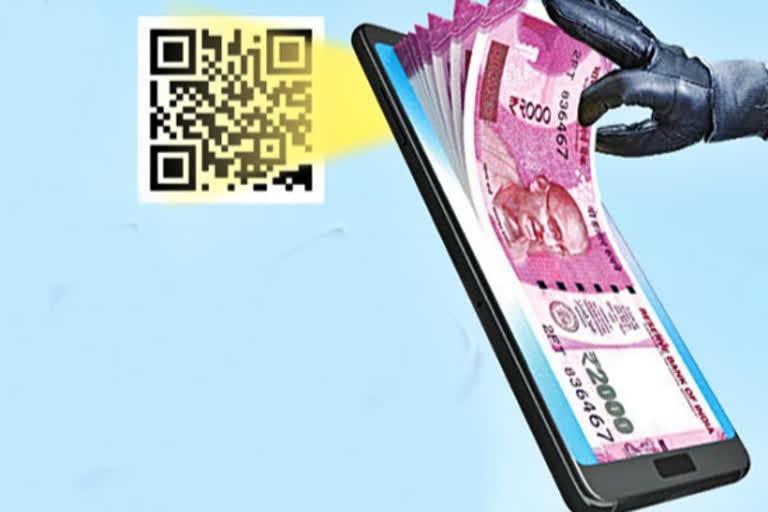Hyderabad (Telangana): From a Kirana store in your neighbourhood to online shopping, QR codes are everywhere. With more and more people scanning QR codes for online transactions, cases of online fraud have also increased in the last few years. Scammers have started exploiting this latest technology to fraud people. Just by getting you to scan a fake QR code, scammers can access all your data.
Vishal, a software engineer, recently received a mail requesting his details as part of 'Know Your Customer' and for this, he had to scan the QR code. Vishal thought it was from the bank and scanned the QR code on his phone. That's it, all the information on his phone reached cybercriminals. Not just personal photos and videos, the bank account information stored in the phone was also received by the scammers and the account became empty within no time. His photos were morphed which were used to threaten Vishal.
In another QR code scam, in Bengaluru, scammers replaced a QR code next to the dining table for customers with their QR code. Bills paid by customers got credited into the scammer's account. Of late, it was learnt that criminals have also changed the QR code of some parking spaces in Delhi
How does it happen?
The goal of a QR code scam is to get you to navigate to a page through which your data and money can be stolen. In the wake of demonetisation, online and QR code payments have increased. Krishna Shastri Pendyala, a Cyber Forensic Expert said, "Think before you scan. Be careful before scanning any QR code. Don't scan the codes that come through WhatsApp and email. Under each QR code is an URL of the respective organisation. It should be noted whether it has the company's name or not. Most important of all are code-scanning apps. If you don't choose the right one your personal information will be leaked."
Shastri further said," After scanning the QR code regarding any payments, if you get a message asking you to download any application, you should be suspicious. This application may contain pirated software. After scanning some QR codes, they take control of the phone and pass the details to the criminals. Everyone should update their antivirus on their phones regularly. Every business should check their QR codes frequently."
How to avoid QR code fraud?
QR code scams are becoming increasingly deceptive. Thankfully, there are simple steps that you can take to minimise the threat of getting scammed. To avoid such scams, always check the URL once you scan a QR code to make sure it is an authentic site. A fake domain name might be similar to a URL, but with multiple typos. Also, whenever paying via QR code to an unknown entity, make sure to verify it before making any payment. One of the most important ways to avoid these scams is to NEVER share your OTPs, UPI ID, or bank account details with anyone as they are confidential.



